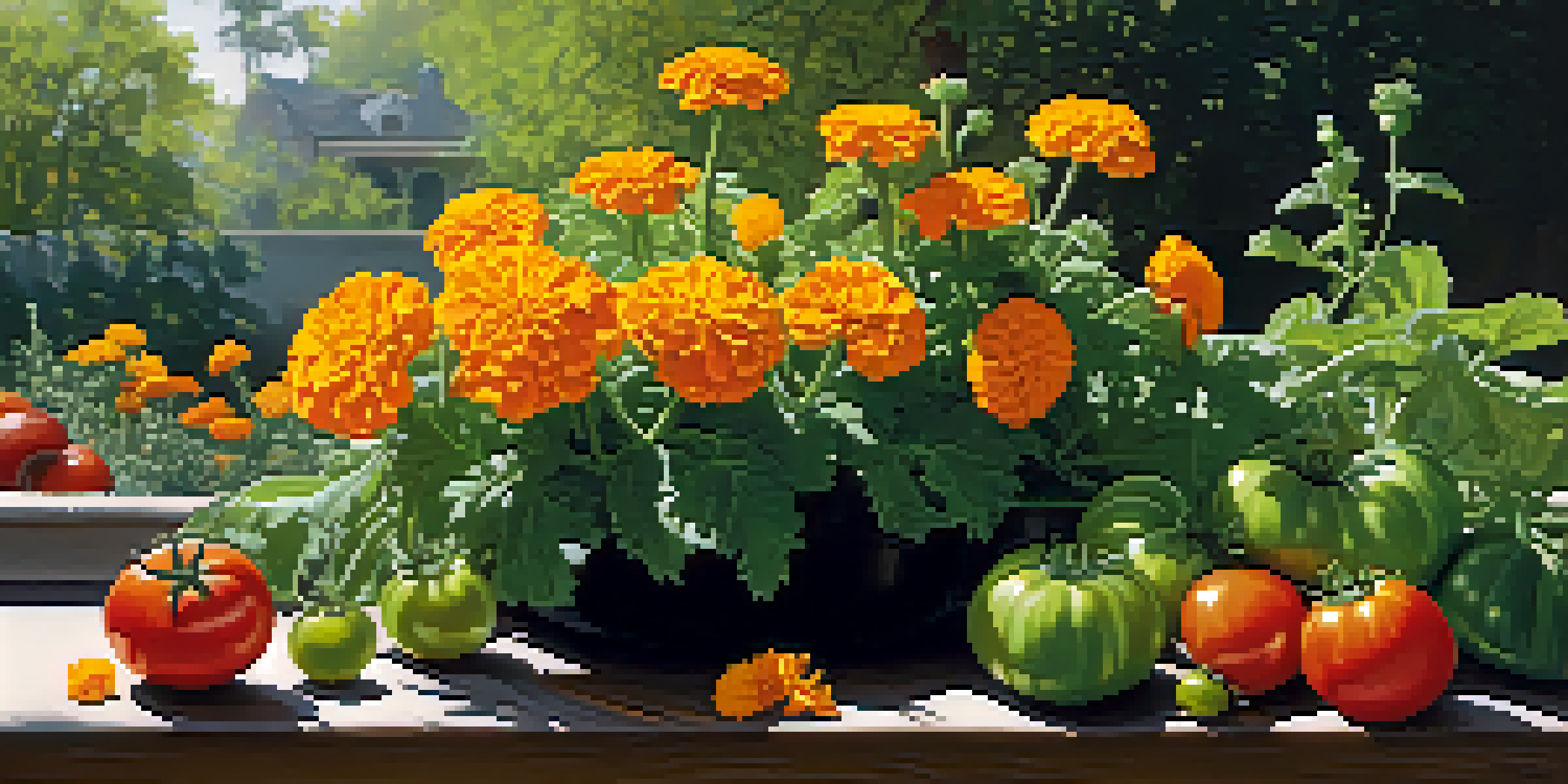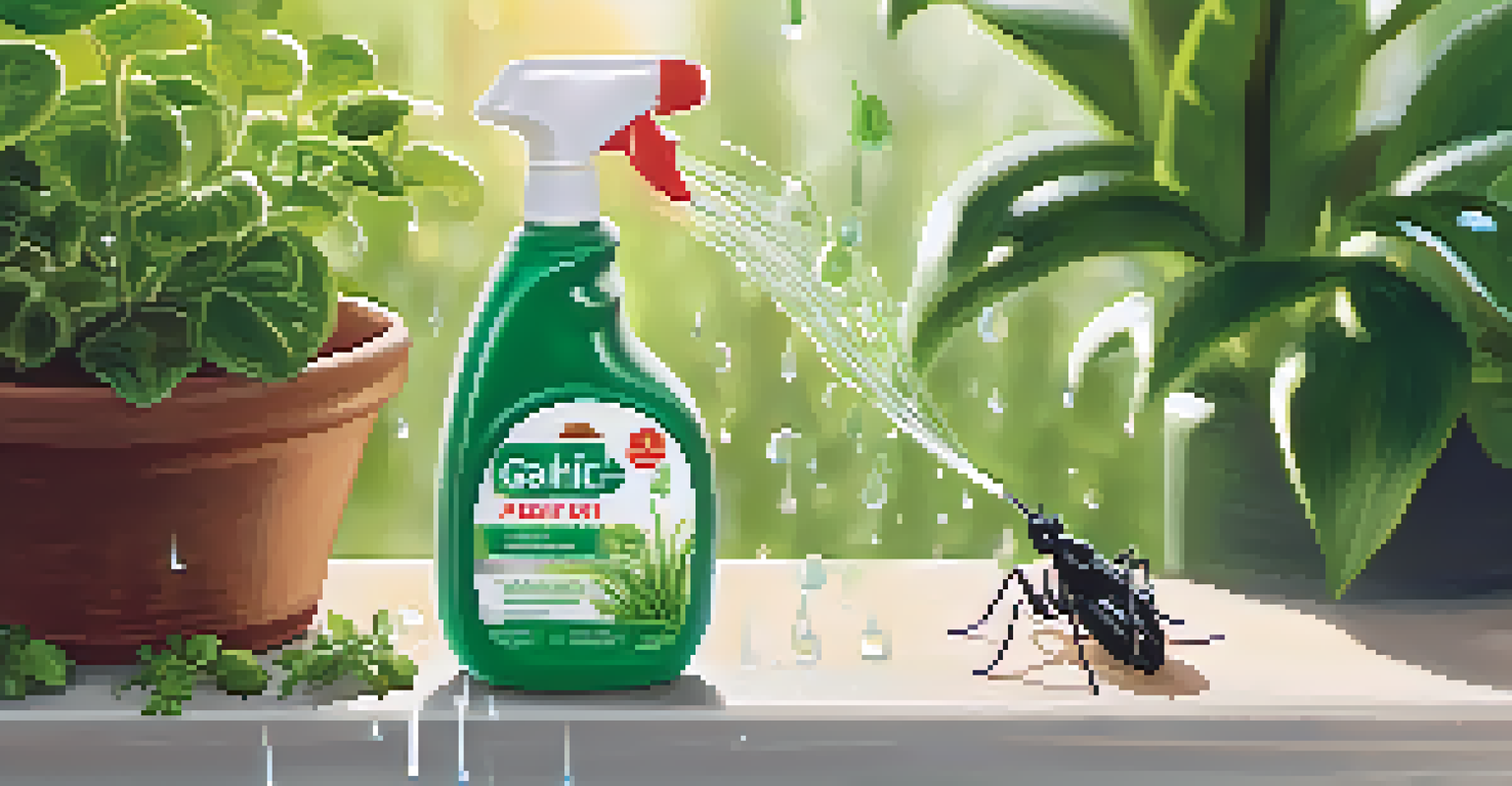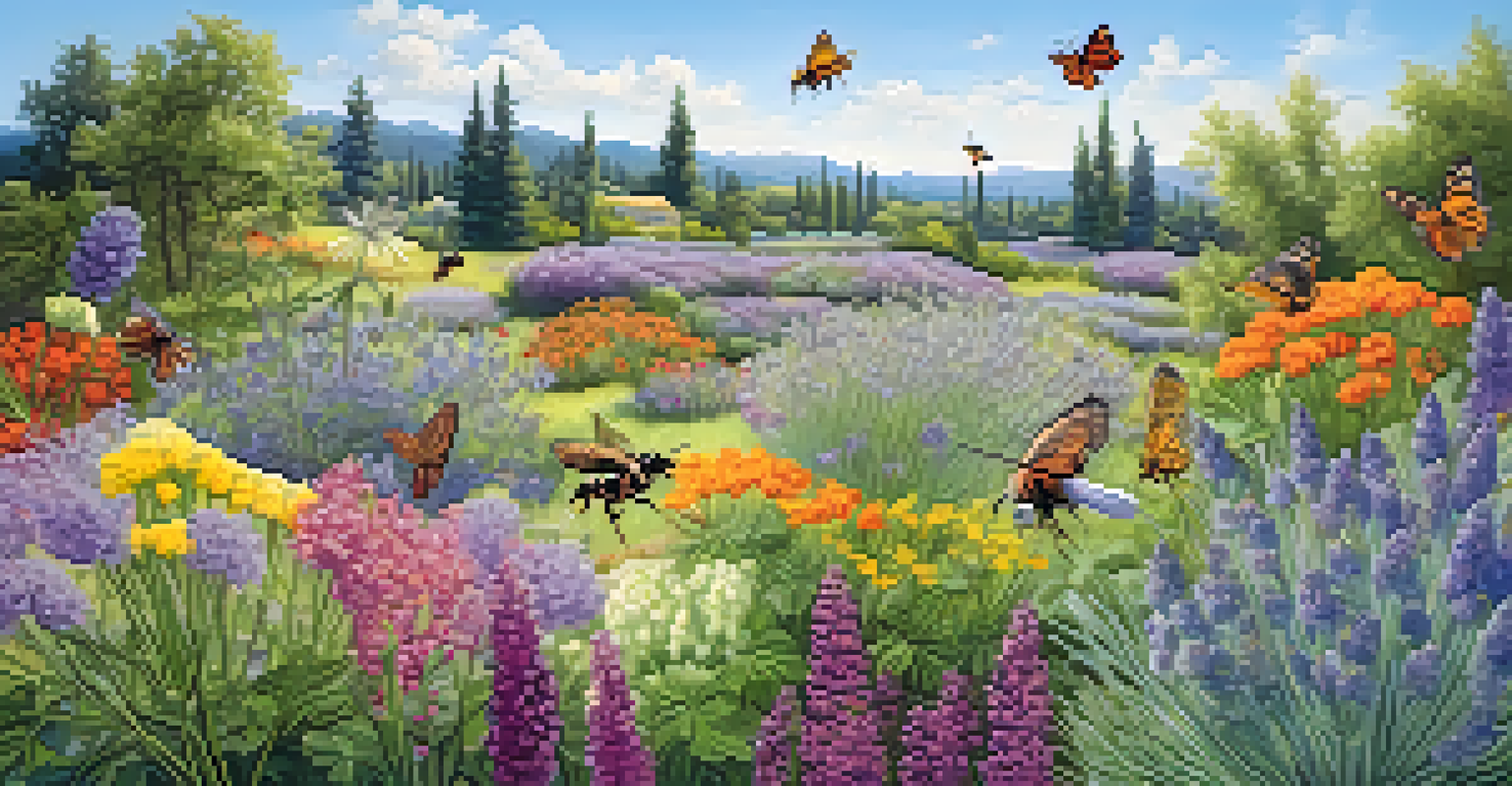Natural Pest Control: Eco-Friendly Methods to Protect Plants

Understanding Natural Pest Control and Its Importance
Natural pest control refers to methods that manage pests using environmentally sustainable techniques. This approach not only protects your plants but also preserves the surrounding ecosystem. By opting for natural solutions, you reduce the risk of chemical exposure to yourself, pets, and beneficial insects.
The best way to control pests is to create a healthy ecosystem in which natural predators thrive.
The importance of natural pest control lies in its ability to create a balanced environment. For instance, attracting beneficial insects like ladybugs can help keep harmful pests in check. This gentle approach fosters biodiversity, ensuring that your garden remains healthy and thriving.
Moreover, natural pest control methods often enhance soil health and plant resilience. By using organic materials, you're not just combating pests but also enriching the soil, leading to better plant growth. This holistic method is a win-win for both your garden and the planet.
Companion Planting: A Natural Defense Strategy
Companion planting is an age-old technique where certain plants are grown together for mutual benefit. For example, marigolds are known to repel nematodes and other harmful insects, making them perfect companions for vegetables. This method not only deters pests but also encourages healthy growth among plants.

By strategically selecting companion plants, you can create a natural barrier against pests. For instance, planting basil next to tomatoes can repel flies and mosquitoes while enhancing the flavor of your tomatoes. It's a simple yet effective way to boost your garden's defenses without resorting to chemicals.
Embrace Natural Pest Control
Using eco-friendly methods protects plants and the ecosystem while reducing chemical exposure.
Additionally, companion planting can improve pollination and overall crop yield. The diversity of plants attracts a variety of pollinators, which can lead to better fruit and seed production. So, the next time you plan your garden, consider how companion planting can work in your favor!
Using Natural Predators to Control Pest Populations
In nature, every pest has a predator, and leveraging this relationship can be a powerful pest control strategy. For example, introducing ladybugs into your garden can drastically reduce aphid populations. These tiny beetles feast on aphids, keeping their numbers in check without harming your plants.
Nature does not hurry, yet everything is accomplished.
Birds are also fantastic allies in natural pest control. By creating bird-friendly habitats, such as birdhouses or feeders, you can attract species that feed on insects. This not only helps control pests but also enhances the beauty and diversity of your garden.
It's essential to maintain a welcoming environment for these natural predators. Avoid using pesticides that can harm beneficial creatures. Instead, embrace a more holistic gardening approach, recognizing that a balanced ecosystem will naturally keep pest populations under control.
Homemade Solutions: Simple Remedies for Common Pests
Homemade pest control remedies can be effective and safe for your garden. For example, a mixture of soap and water can work wonders against soft-bodied insects like aphids and spider mites. This simple solution suffocates the pests without harming your plants.
Another popular remedy is garlic spray, which can deter a variety of pests due to its strong odor. Blending garlic with water and a bit of soap creates a powerful, eco-friendly repellent. Just remember to test any homemade solution on a small plant section first to ensure it doesn't cause any damage.
Companion Planting Benefits
Strategically pairing plants can deter pests and promote healthy growth without chemicals.
These DIY methods not only save you money but also allow you to have control over what goes into your garden. Plus, they can be fun to make! Experimenting with different natural ingredients can lead to discovering what works best for your unique garden situation.
Essential Oils: Nature's Powerful Pest Deterrents
Essential oils, derived from plants, are potent natural pest deterrents. Oils like peppermint, lavender, and neem have been shown to repel various pests due to their strong aromas. A few drops mixed with water can create a spray that protects your plants from unwanted visitors.
For instance, peppermint oil is particularly effective against ants and spiders, while lavender oil can ward off moths and fleas. This makes essential oils a versatile option for natural pest control. Just be cautious with the concentration, as too much can potentially harm your plants.
Incorporating essential oils into your gardening routine not only helps with pest control but also adds a lovely fragrance to your garden. It's a holistic approach that combines beauty, aroma, and pest management all in one.
Maintaining Plant Health: A Key to Pest Resistance
Healthy plants are more resilient to pests, making maintenance an essential part of pest control. Regular watering, proper spacing, and nutrient-rich soil contribute to robust plant growth. When plants are strong, they can better withstand pest attacks and recover more quickly.
Additionally, practicing crop rotation can help maintain soil health and prevent pest buildup. By changing the location of your plants each season, you disrupt the life cycles of pests that might be lingering in the soil. This simple practice can lead to healthier plants and fewer pest issues.
Healthy Plants Resist Pests
Maintaining robust plant health through proper care and practices enhances resilience against pests.
Incorporating practices like mulching can also enhance plant vitality. Mulch retains moisture, suppresses weeds, and even provides nutrients as it breaks down. A thriving garden is your best defense against pests, so focus on fostering a healthy environment for your plants.
Creating a Balanced Ecosystem for Pest Control
A balanced ecosystem in your garden is crucial for effective natural pest control. This means fostering a variety of plants, beneficial insects, and soil health. By creating a diverse environment, you allow nature to work in harmony, where pests are kept in check by their natural predators.
Incorporating flowering plants can attract beneficial insects, such as bees and butterflies, which help with pollination and pest control. For example, planting dill or fennel can attract predatory wasps that prey on caterpillars. This diversity not only protects your plants but also enhances the beauty of your garden.

Moreover, practicing sustainable gardening techniques, like composting and organic fertilization, contributes to a thriving ecosystem. By focusing on balance, you can reduce pest problems while promoting overall garden health. Embracing this approach leads to a flourishing garden that benefits both you and the environment.
Final Thoughts on Eco-Friendly Pest Management
Natural pest control methods offer a sustainable way to protect your garden while being kind to the planet. By understanding the various strategies available, from companion planting to using essential oils, you can effectively manage pests without resorting to harmful chemicals. This not only benefits your plants but also promotes a healthier ecosystem.
As you explore these eco-friendly methods, remember that patience is key. Natural solutions may take longer to show results compared to chemical treatments, but they foster a more resilient garden in the long run. Plus, the satisfaction of managing pests naturally is truly rewarding.
So, whether you're a seasoned gardener or just starting, consider adopting these natural pest control practices. Your plants—and the planet—will thank you for it, creating a flourishing garden that's safe for everyone.